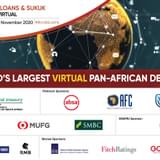Can you give readers a sense of Mixta Africa’s background and corporate objectives? Where is the company most active and where does the company raise most of its funding?
The company was founded in 2005 with headquarters in Barcelona, has operations and developments in Morocco, Senegal, Tunisia, Côte d’Ivoire, Nigeria. We also had projects in Mauritania, Algeria and Egypt. The company was acquired by ARM HoldCo in 2015 and merged with ARM Properties in Nigeria, giving us greater scale and focus on Africa. We participate mainly in social housing programmes in Africa, with a few exceptions.
Though we are mainly focused on northern and western Africa, we are looking closely at expanding in a number of large African countries – particularly Kenya, Ethiopia and Zimbabwe. We are very encouraged by what we’ve seen on the ground in some of these countries, and the scale of regulatory support for the kinds of programmes we engage with is quite robust. In some cases, we note that economic potential greatly surpasses current utilisation, which creates significant room for growth.
How we fund our projects depends largely on the state of the market where we are developing the project, and the scale of our needs. Each country we operate in is quite different. The state of the credit and mortgage market tends to play a significant role in determining our ability to stretch our tenors, and has significant sway over our decision to fund in-country. Coupled with traditional metrics like interest rate and structure, you need the right tenors – and for our projects, they tend to be on the longer end. We have done quite a bit of funding locally in Morocco and Nigeria, but tend to stay away from cross-border deals because they can be overly costly and complex.
Mixta Africa hit the debt markets twice in 2017, one of the few non-sovereign and non-bank entities to do so. What can you tell us about those transactions – and, given the environment, how challenging was it getting these deals off the ground?
We tend to deploy our own equity in combination with funding raised from pre-sales activities to catalyse projects, and raise money in the debt markets to satisfy the rest of our financing needs. In Nigeria, where we have a large operation, raising long-term debt is much more challenging than tapping the short-term market. Nevertheless, we raised NGN4.5bn in fixed-rate bonds at 17% as part of a NGN medium term note programme, largely to repay existing loans with a number of domestic lenders, and we also hit the commercial paper market to top up our working capital in a local project slated for completion later this year.
The last two years have been particularly challenging for Nigerian borrowers. Credit had pretty much dried up, and with the government also borrowing heavily, other borrowers in the bond market were effectively crowded out, while local banks dealt with persistent liquidity issues. But the situation is improving, and we suspect that as the liquidity challenges started easing towards the end of 2017 and into this year, we will see the market gradually open to non-bank corporates among others.
One of the main challenges in Nigeria is interest rates, which has really hampered the long-term funding market. How do you see the recovery feeding through from the short-tenor market into the long-term market?
We are likely to first see a revival of the short-term market in the first instance, particularly as the government scales back its borrowing, which will give more corporates in Nigeria more room to operate. Nigerian corporates tend to be biased towards the short term in their borrowing, partly as a function of lack of long-term data on cashflows and the like, and partly because of liquidity constraints, so I believe we will see more commercial paper at the outset.
At the same time, many corporates will want to take advantage of declining interest rates and a better inflation outlook to rebalance their tenor profiles and spread maturities a bit better. Meanwhile, long-term institutional investors will need to satisfy their own diversification requirements – moving out of government securities and into long-term assets elsewhere. Bringing more institutional investors into transactions will also serve to bolster confidence among both borrowers and investors in the debt markets, contributing to a virtuous cycle. One of the earliest things that we did – particularly as the market began to improve – was collaborate with large institutional investors, especially those that needed to rebalance towards long-term assets.
To what extent do you see this as a reflection of Mixta Africa’s strategy and objectives through 2018 and beyond?
Most of our funds on our balance sheet are short term in nature, and used to catalyse or complete projects. But we are currently transitioning towards an approach that will see us raise more money across longer tenors so that we can develop more homes. Particularly as the market regains confidence.
We are sufficiently capitalised, but the problem, however – as with all real estate companies – is that most of our capitalisation is in illiquid assets - like land assets - that we can’t count on unless we spend money and convert them into liquid assets. You need to jump through a number of costly hoops in order to achieve that. At the scale we want to operate in, we will need to apply a lot of funding to convert that. But balance will be required – we need to aim for the right level of capital so that we don’t shoot ourselves in the foot in the short-term. Striking that balance will be a key objective in 2018 and beyond.









